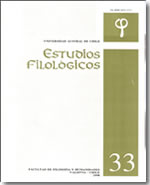Suspense... in the History of the Russian Revolution, by Leon Trotsky
Main Article Content
Abstract
Analysing Leon Trotsky’s History of the Russian Revolution one can study the relations between fiction and historical narration and understand that they are not contradictory, but they support each other. Paul Ricoeur’s theory of narrative agencement de faits and Alfred Hitchcock’s definition of suspense make possible a detailed analysis of how suspense enhances the historical argumentation in Trotsky’s work. The artificial aspect of a narrations does not come from the fact that it is fictional or historical, but from the fact that in narration the happening of events and time have a kind of succession that is as necessary as that one of natural laws, but their necessity and succession make place to discontinuity, condensation and gaps that do not exist in the world and that are natural in historical and fictional works.

